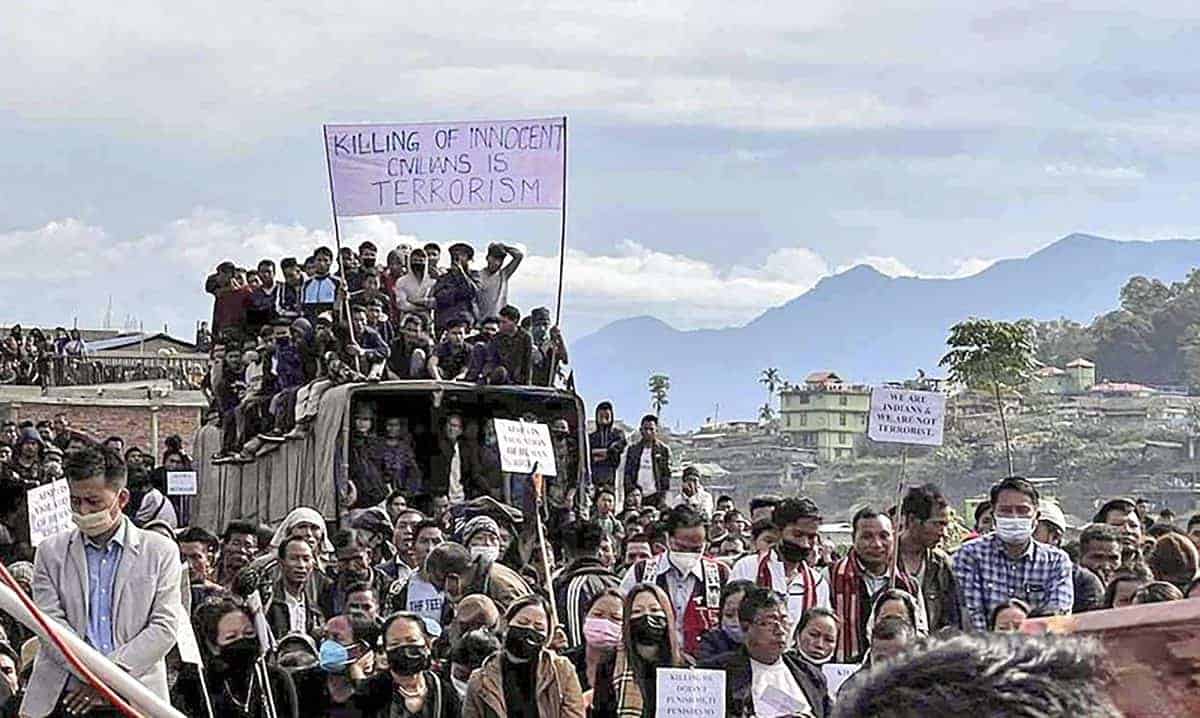Kohima: The cabinet of Nagaland Chief Minister Neiphiu Rio on Tuesday called off the ongoing Hornbill Festival in protest against the killing of 14 civilians by security forces, state ministers said.
The state government also decided to write to the Centre demanding the repeal of the Armed Forces (Special Powers) Act, they said.
During an emergency meeting, the cabinet was briefed about the action taken following the killing, including setting up of a Special Investigation Team (SIT) headed by an IGP rank officer and grant of ex-gratia to the next of kin of the deceased by the state and central governments, ministers Neiba Kronu and Temjen Imna Along later told reporters.
The cabinet has directed the SIT to complete the investigation within a month, they said.
Kronu said that altogether 14 civilians have died in the incident, while two seriously injured are undergoing treatment in neighbouring Assam, and six are being treated in Dimapur.
The firing incidents took place in Oting-Tiru area on December 4 and Mon town on December 5.
“All activities of Hornbill Festival 2021 should cease in view of mourning announced for the deceased in the firing incidents in Mon district,” Kronu said.
After the announcement, the tourism department, the main organiser of the festival, held a solemn closing ceremony at the Naga Heritage Village.
The state government had cancelled the day’s event at the venue on Monday. Several tribes from eastern Nagaland and other parts of the state had suspended all activities at their respective Morungs over the killing in Mon district.
On the appeal of civil society groups, especially the Naga Students’ Federation, to convene a special assembly session to pass a resolution demanding the repeal of the AFSPA, Along said that the state government can only appeal while it is up to the Centre to take the final decision on repealing the Act.
Rio, while attending the funeral of the 14 civilians in Mon town on Monday, had joined a growing chorus of demands seeking the repeal of AFSPA that gives special powers to security forces in “disturbed areas”.
Critics have maintained that the controversial law gives the armed forces to act with impunity, leading to human rights violations.

